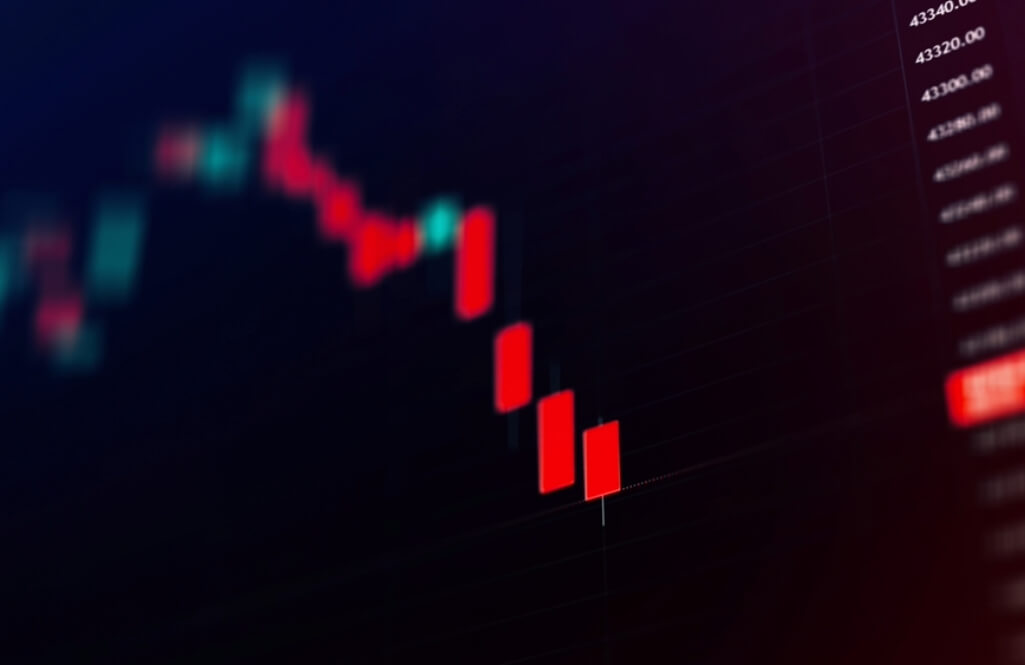
How can Forex crash? Forex market crash history
Fact that the Forex is one of the most volatile and most profitable markets in the world attracts many traders. However, Forex market crashes can happen. And can have ripple effects across global economies. But have you ever wondered how a Forex crash can happen? Let’s dive into what triggers a Forex crash and how it differs from a stock market crash.
Key Takeaways
- Unlike the stock market, a Forex market crash doesn’t impact the entire financial system.
- When the Forex market crashes, it doesn’t bring down the whole market. Only specific currencies face the heat.
- The 2008 economic recession led to a significant drop in the stock market, notably the Dow Jones.
- The Forex market, being the largest financial market, usually remains stable. Crashes in Forex are rare and typically involve sharp declines in specific currencies, not the entire market.
- Forex crashes can occur randomly and are often due to specific economic or political events. Understanding these factors is key to navigating the Forex market effectively.
- Flash crashes are sudden and severe. The Japanese Yen’s flash crash is a classic example where the Yen surged unexpectedly against other currencies in a very short time.
Stock Market vs Forex Market Crashes
Unlike the stock market, where a crash often reflects a decline in the value of stocks, a Forex crash is all about currency values plummeting or skyrocketing unusually. Forex market volatility plays a huge role here.
While the stock market can crash due to company performance or economic downturns, the Forex market often crashes due to global economic events or drastic changes in currency market trends.
When did the Forex market crash?

Let’s talk about when the Forex market took a nosedive. Now, the Forex market doesn’t crash in the traditional sense like the stock market does. What we have instead are significant currency devaluations or extreme volatility.
One of the most notable instances was the global financial crisis of 2008. This wasn’t a crash in the Forex market alone but a meltdown that hit every corner of the financial world.
During this crisis, major currencies like the US Dollar, the Euro, and others experienced wild swings. The crisis started in the US housing market and quickly spread to the financial sector, impacting banks and financial institutions worldwide.
As a result, there was a massive flight to safety among investors, and everyone started buying up currencies they considered safe, like the US Dollar and the Japanese Yen.
Another example, more of a flash crash, happened in January 2015 with the Swiss Franc. The Swiss National Bank suddenly decided to unpeg the Franc from the Euro, and boom! The Franc skyrocketed. Traders who had bets against the Franc were caught off guard, and it caused a lot of chaos in the market.
So, in the Forex market, a “crash” usually means extreme currency movements caused by big global events.
These events show how interconnected our world economies are and how quickly things can change in the Forex world. It’s a market that never sleeps, and something happening on one side of the globe can send ripples across the entire market.
That’s why Forex traders always need to stay on their toes and keep an eye on global events – because in Forex, when it rains, it pours!
What Causes Currency Crashes?
Currency crashes in the Forex market are usually a result of a mix of Economic Factors in Forex and Forex Market Analysis going awry.
Unexpected changes in interest rates by central banks, political instability, or global financial crises can lead to dramatic shifts. For example, Black Monday in 1987 was a global financial crisis that significantly impacted Forex markets.
Trading currencies comes with its set of risks. Forex traders must understand these risks to effectively buy and sell currencies. Key among these is the financial leverage risk. Using high leverage can amplify gains, but it can also magnify losses, potentially leading to a Forex market crash.
Financial Leverage Risk – Managing Leverage
Effective Forex Risk Management involves using stop loss orders and carefully managing leverage. While leverage can help increase profits from small price movements, it’s a double-edged sword.
A sudden unfavorable move can lead to substantial losses, hence using stop losses is essential to protect against unforeseen market movements.
Many Forex traders fail because they have too little capital for the size of their trades. They often take huge and risky financial bets because they want to control a lot of money with just a little capital, or because of greed.
For instance, with a 100:1 leverage, which is quite common, a price change of just -1% can cause a 100% loss. Each loss, even small ones from early trade exits, makes the problem worse. This happens because these losses decrease the total account balance, which then raises the leverage ratio even more.
Forex market crash – Long-term vs Flash Crashes

Long-term crashes are less about sudden movements and more about prolonged economic trends. For instance, long-term changes in a country’s economic health can lead to a gradual but steady decline in its currency value.
For example, Venezuela is facing a significant currency crisis as the bolivar plummets in value following US sanctions that have a physical disability to the country’s oil industry, which was a major foreign exchange earner.
On the other hand we have Flash crashes that are sudden and severe. The Japanese Yen’s flash crash is a classic example where the Yen surged unexpectedly against other currencies in a very short time, showcasing the unpredictable nature of the Forex market.
Similar to the Yen’s flash crash, the Swiss Franc has also experienced significant volatility. Sudden policy changes by the Swiss central bank in 2015 led to the Franc soaring, catching many traders off guard.
Japanese Yen’s Flash Crash
It’s January 2019, just another regular day in the Forex world, and then – boom! Out of nowhere, the Japanese Yen skyrockets against major currencies like the US Dollar and the Australian Dollar.
This kind of sudden surge is what we call a ‘flash crash.’ In this case, it happened in the blink of an eye, during a time when most traders in major financial centers like Tokyo and New York were probably dreaming away – yep, it was during the Asian market’s quieter hours.
Now, you might wonder, what exactly caused this wild ride? Well, it’s a bit like a perfect storm. There were growing tensions between the US and China over trade, concerns about the US government shutdown at the time, and some shaky global economic data. All these factors were already making investors a bit jittery.
Then comes the thin trading volume. Since it was during off-peak hours, there weren’t many players in the market to absorb any shocks. So, when some automated trading systems kicked in, it exaggerated the Yen’s movement even more. It’s like throwing a big rock into a small pond – you’re going to see some huge ripples!
This flash crash was a wake-up call for many Forex traders. It showed just how quickly things can change in the foreign exchange market. For traders caught on the wrong side of it, it was a harsh lesson in risk management. It underlined the importance of being prepared for anything, especially when trading such a volatile market.
In the end, the Yen’s flash crash serves as a reminder that in the Forex world, calm waters can turn turbulent in an instant, so you’ve always got to be ready with your lifejacket – or in Forex terms, your solid trading strategy and risk management tools.
Conclusion
Understanding the dynamics of a Forex market crash is crucial for anyone involved in currency trading. Unlike the stock market, Forex crashes stem from a variety of factors, including economic shifts, policy changes, and global events.
Traders need to stay informed, practice sound risk management, and stay updated with Forex Trading Strategies to navigate these waters. Remember, the key to successful trading in the Forex market, which is fraught with risks and opportunities, lies in being prepared and informed.




